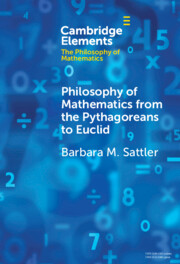Refine search
Actions for selected content:
1 results

Philosophy of Mathematics from the Pythagoreans to Euclid
-
- Published online:
- 21 April 2025
- Print publication:
- 22 May 2025
-
- Element
- Export citation
